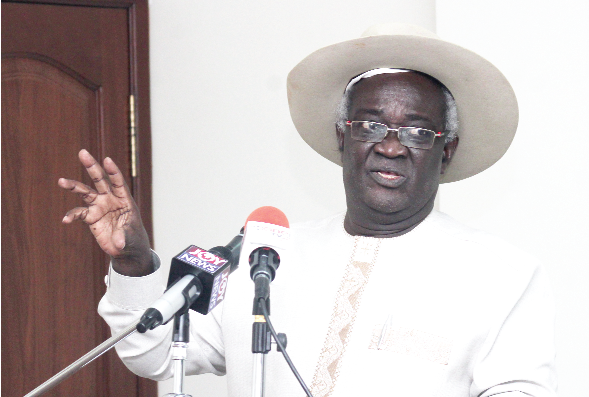
Local assemblies must become executive heads in districts — Prof. Kwamena Ahwoi
A local governance expert Professor Kwamena Ahwoi, is proposing that local assemblies should become the executive heads in districts.
The position of the metropolitan, municipal or district chief executive (MMDCEs), he suggested, should be taken over by an astute manager, which would work under the direction of the executive assembly who would be the body to appoint him or her.
Advertisement
He made the suggestion as an alternative to the election of MMDCEs by citizens, which is thought to make them accountable to their communities in the districts.
Prof. Ahwoi said that at a round-table discussion on Local Governance Reforms and Public Service Institutions organised by the Institute of Democratic Governance (IDEG).
It was on the theme, “Three decades of decentralised local governance in Ghana: Retrospect and prospects.”
Context
For some time now, the country has been grappling with the accountability of MMDCEs, who owe allegiance to the President who appoints them.
In the past decade, there has been a push for MMDCEs to be elected to make them accountable to Ghanaians, instead of the President appointing them which results in their allegiance to him rather than the people.
The issue became a campaign issue in the 2016 general election.
President Nana Addo Dankwa Akufo-Addo, in keeping with his campaign promise to elect MMDCEs, gave impetus to the pledge on Independence Day, March 6 this year.
He announced a referendum next year to amend Article 55 (3) of the 1992 Constitution, which limits the election of MMDCEs on partisan basis.
Technocrat MMDCE
But the doyen of decentralisation in the country, who birthed the concept in the 1980s, advocated caution in the election of MMDCEs.
He explained that the election of MMDCEs would not be a panacea for all the challenges of decentralisation.
“When we elect MMDCEs we would satisfy the need to have downward accountability, but it will not satisfy the need for efficiency,” Prof. Ahwoi said.
He said an inefficient elected MMDCE could be costly for assemblies as they would be directly liable in legal suits.
He maintained that with his proposal of the collective municipal, metropolitan or district assembly as the political authority at the local level with an appointed MMDCE who would not be political but a seasoned technocrat with the requisite skills to bring about the required development results to the district, the need for accountability and efficiency would be satisfied.
He made other recommendations which included a cap on the creation of more districts.
For him that undermined the principles of decentralisation, as the newly created districts did not have the capacity and were unviable to lead any substantial development.
Opportune
The Deputy Minister of Local Government and Rural Development, Mr O. B. Amoah, in his submission reiterated the President’s desire to ensure that local assemblies lead development in communities.
He said the round-table discussion was, therefore, appropriate to dialogue and strengthen the country’s decentralisation process.
The Head of the Local Governance Service (LGS), Dr Nana Ato Dadzie, in his submissions said the mantra of some that there was no capacity at the local authority for further decentralisation was merely an excuse.
He said the staff members of the service, who were most often accused of having no capacity, were the same that were usually seconded to ministries and development agencies.
The Chair of the Steering Committee of Strengthening Transparency, Accountability and Responsiveness (STAR), Ghana, Dr Esther Offei-Aboagye, in a review of local governance and its inter-relationships with civil society organisations, advocated the Municipal Financial Bill, which had been talked about in times past.
According to her, building capacity and making local authorities lead in the development effort meant that sources of funding had to be defined.
Municipal finance bill
A development consultant and managing director of Maple Consult, Mr Mawuena Dotse, asked the central government to stop completely or minimise the upfront deductions for sanitation from the District Assembies’ Common Fund (DACF).
He urged government to rather give the funds to the assemblies and make them accountable.
The Executive Director of the IDEG, Dr Emmanuel Akwetey, in his submissions reminded participants that this year marked 30 years of decentralisation practice.
“It is, therefore, a good span to review the model and strengthen it,” he pointed out.



